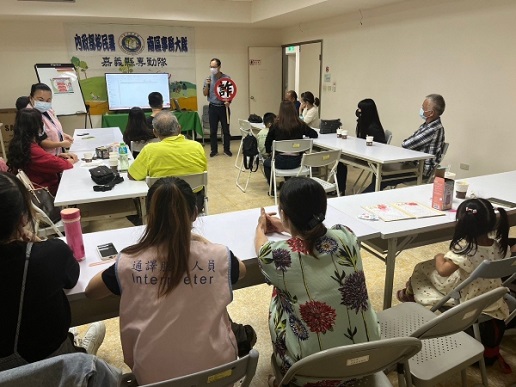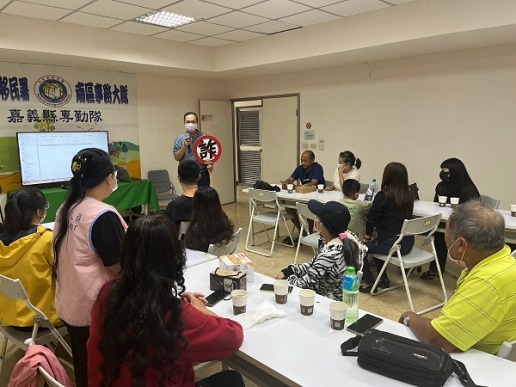The Chiayi District Prosecutor's Office and the Chiayi County Immigration Service Station recently held a family education event for new residents, focusing on fraud prevention. The event, led by probation officer Lu Haoquan, aimed to educate new residents on common scams and raise fraud awareness. Fraud schemes are becoming increasingly varied, including fake dating and romance scams, fake job recruitment, impersonation of government officials, fake online shopping, and fake prize notifications. (Photo from Chiayi District Prosecutor’s Office website)
Fraud schemes are becoming increasingly varied, including fake dating and romance scams, fake job recruitment, impersonation of government officials, fake online shopping, and fake prize notifications. (Photo from Chiayi District Prosecutor’s Office website)
Lu Haoquan explained that as online transactions and social media platforms become more popular, fraud techniques are becoming increasingly diverse. Common scams include fake romance, fake job recruitment, impersonating public officials, fake online shopping, and fake lottery notifications. These scammers often use persuasive language and exploit human weaknesses, leading to financial losses for victims. Lu stressed that new residents should remain highly vigilant, avoid making arbitrary withdrawals, transfers, or lending accounts, and call the anti-fraud hotline 165 if suspicious situations arise.
Chiayi County Immigration Service Station representative Huang Yixian further pointed out that new residents face challenges such as language, cultural differences, and unfamiliarity with the law, making them easier targets for scammers. In one instance, a Filipino new resident nearly became an accomplice in international money laundering after trusting a scam disguised as an agent. Huang advised new residents to stay alert and seek help when needed.
To assist non-native speakers, the Immigration Agency offers the "1990" hotline for foreign nationals in Taiwan, available in Chinese, English, Japanese, Vietnamese, Indonesian, Thai, and Khmer. Vietnamese, Indonesian, Thai, and Khmer services operate from Monday to Friday, 9 AM to 5 PM, while Chinese, English, and Japanese are available 24/7.







